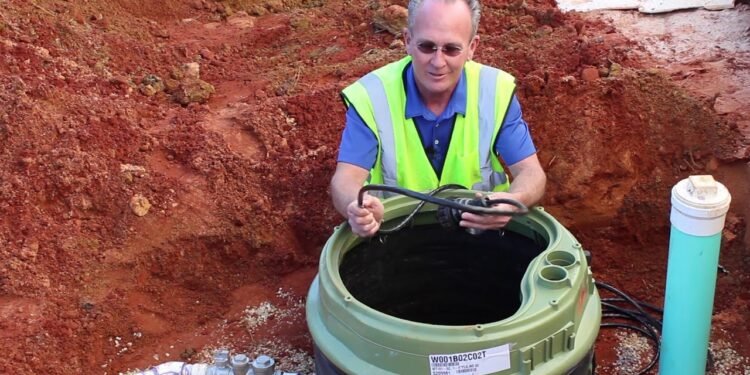A grinder pump system is a complex wastewater disposal system. If yours begins making unusual noises or exhibiting other signs of trouble, it may need professional repair.
Some of the most common problems include clogged pipes, alarm malfunctions, and power outages.
Excessive Noise
Grinder pumps generate noise while running but should not be disruptive or emit a strong odor. If you notice a change in the noise level, likely, the pump is not functioning correctly.
If the grinder pump alarm sounds excessive, it may be time to call for grinder pump repair NYC. A skilled plumber can inspect the pump and recommend ways to reduce noise.
Inspecting and cleaning the grinder pump regularly helps to keep it operating smoothly. It is also essential to educate household members about properly using plumbing fixtures and avoid flushing inappropriate items that can clog the system and cause problems with the grinder pump motor. An experienced technician can clear clogs, test the motor for operation, and address any issues before they worsen.
Frequent Clogs
Grinder pumps should require minimal homeowner maintenance, but if you’re experiencing frequent clogs and sewage back-ups, it’s time to call for professional help. This is a sign that the pump’s internal workings are starting to clot, meaning that more significant pieces of debris are trapped within the pump and reducing flow.
To prevent this, schedule a routine inspection and service visit with a licensed plumber who can inspect the pump basin, clean components, and test the operation of the alarm system before leaving your property. Additionally, educating household members on what can and cannot be flushed will further help to prevent clogs. It would help if you also got your grinder pump tank pumped every 3 to 5 years. This will remove sludge and solid waste, helping to extend the pump’s life.
Slow Drainage
Over time, waste, debris, and sludge can build up inside the pump tank and piping. This can cause clogs, restrict flow, and cause sewage to back up into your home. To prevent this, avoid flushing items that don’t belong in the wastewater system, like paint, kitty litter, disposable napkins, oil, and more.
Monitor your grinder pump’s alarm system and note any frequent or excessive activation. This can be an indicator that your grinder pump needs professional maintenance.
Also, check the discharge pipe that carries waste from your home and into the public sewer line for signs of cracks, blockages, or leaks. A clogged discharge pipe will cause your grinder pump to work harder, which can wear out the motor and shorten its lifespan.
Low Water Pressure
If your grinder pump system shows signs of a problem, acting quickly is essential. Failing to have a faulty system inspected by a professional can lead to sewage leaks and water damage in your home.
The discharge pipe that carries waste out of the grinder pump must remain transparent to prevent blockages and overflow.
Often, homeowners can reduce the noise generated by their grinder pump by soundproofing the area around it. Adding acoustic panels and rugs can minimize noise reflection and reverberation. Positioning the pump away from living areas is also recommended whenever possible. It’s also important to avoid flushing non-biodegradable items like wipes, sanitary products, and grease. These items can contribute to pump noise and clogs.
Power Failure
The grinder pump system can only function if the power to it is working correctly. When this is not the case, it can lead to clogs and sewage backups that could be very dangerous for you and your family.
A faulty motor in your grinder pump can also cause problems. This may result in a decrease in the efficiency of the entire system. Fortunately, hiring professional service specialists can resolve this problem before it worsens.
Taking preventive measures is the best way to extend the life of your grinder pump. Regular inspections, cleaning, and maintenance can help avoid costly breakdowns and other issues. Dull blades, worn-out bearings, water leaks, and other factors can all decrease the performance of your system. Following the manufacturer’s instructions, conducting regular inspections, and seeking professional assistance can help you avoid these common grinder pump issues. Read more interesting articles on Ebeak



